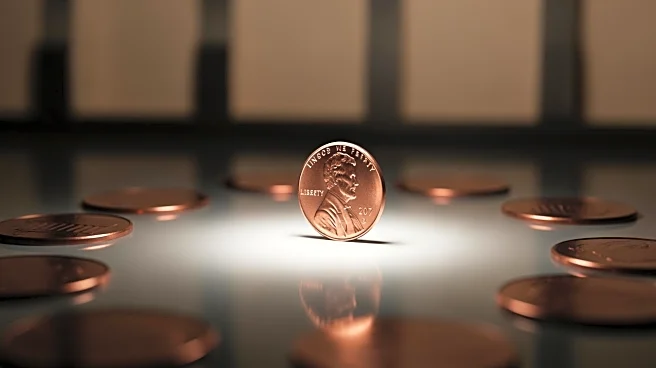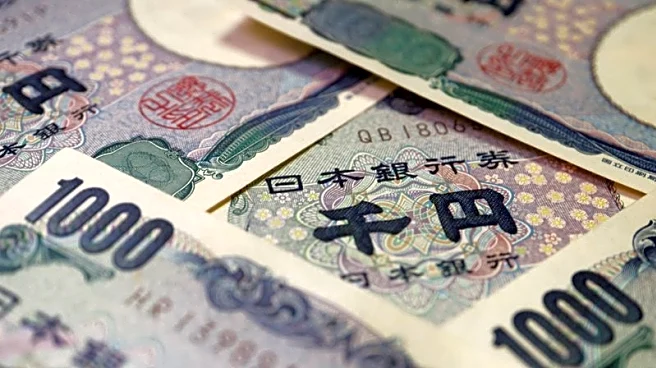What's Happening?
The U.S. Treasury has suspended the production of pennies, citing increased production costs and reduced necessity. The cost to produce a penny has risen significantly, prompting the decision to halt production.
This change has led to a shortage of pennies, affecting cash transactions at convenience stores. Retailers are adapting by rounding cash transactions to the nearest nickel, although some states have laws prohibiting such rounding. The National Association of Convenience Stores is advocating for a national law to allow rounding. Kwik Trip has implemented rounding down for cash transactions, while other stores like Love’s Travel Stops and Stewart’s Shops are adjusting their pricing strategies to accommodate the shortage.
Why It's Important?
The suspension of penny production highlights the economic challenges associated with maintaining low-denomination currency. The decision impacts retailers and consumers, as cash transactions require adjustments. The shortage may lead to changes in pricing strategies and transaction processes, affecting consumer behavior and store operations. The move also raises questions about the future of physical currency and the potential shift towards digital transactions.
What's Next?
Retailers are expected to continue adapting to the penny shortage by implementing rounding strategies. The National Association of Convenience Stores is pushing for legislative action to standardize rounding practices. The Treasury may provide further guidance, and retailers will need to adjust their systems to accommodate the absence of pennies.













